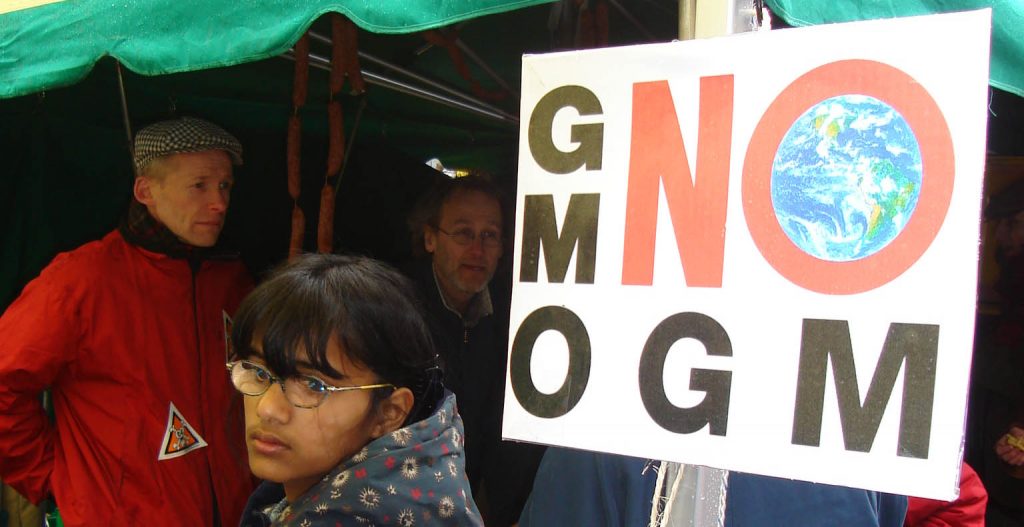Brussels, January 23rd – Friends of the Earth welcomes the Austrian Government’s decision today to ban Monsanto’s genetically modified (GM) oilseed rape, GT73. There are now twelve bans of GM foods or crops in the European Union (1). The decision by the current EU presidency follows November’s referendum in Switzerland that banned GM crops for five years.
“Opposition to genetically modified organisms (GMOs) is growing throughout Europe,” said Helen Holder, GMO campaigner at Friends of the Earth Europe, “This is a clear message from the country currently holding the EU presidency”.
“Counties are overriding the EU commission and the number of national bans are increasing. This is on top of the large number of European regions who want to ban the growing of GM crops,” she added
The Austrian decision is based on the risk of genetic contamination, and the inadequate risk assessment carried out prior to the EU Commission authorizing the oilseed rape in August 2005. This authorisation came despite a majority of EU Environment Ministers blocking the authorisation of the oilseed rape in December 2004 (2) for environmental and health reasons.
“The authorisation procedure for GM food and crops in the EU does not take risk assessment seriously,” said Holder. “Austria’s new ban is yet another example of the inadequate risk assessment by Europe’s Food Safety Authority, and the Commission’s unwillingness to listen to Member States’ concerns”
GMOs are now banned in seven European countries, while the number of EU regions banning GMOs is also growing:
– 172 Regions in the European Union and 4500 local authorities and other zones have now declared themselves GMO free (3) and are calling for the right of Regions to decide whether or not to grow GMOs.
– In June 2005, the EU Commission was defeated by Member States when it tried to force them to drop national GMO bans. (4)
***
Notes:
(1) GMO bans in the European Union:
Germany
Syngenta’s Bt176 maize (banned 31/03/2000) – Reason: effects on non-target insects + transfer of antibiotic resistance genes to humans and animals + insects could develop resistance to the Bt
France
Bayer’s oilseed rape Topas 19/2 (banned 16/11/1998) – Reason: impact of genetic escape and spread of herbicide tolerance Bayer’s oilseed rape MS1xRf1 (banned 16/11/1998) – Reason: impact of genetic escape and spread of herbicide tolerance
Austria
Syngenta’s Bt176 maize (banned 13/02/1997) – Reason: effects on non-target insects such as butterflies + transfer of antibiotic resistance genes to humans and animals Bayer’s T25 maize (banned 28/4/2000) – Reason: protection of sensitive areas, lack of monitoring plan and concerns about the herbicide used Monsanto’s MON810 maize (banned 10/06/1999) – Reason: Effects on non-target insects
Hungary
Monsanto’s maize MON810 seeds (banned 20/01/2005)
Luxembourg
Syngenta’s Bt176 maize (banned 07/02/1997) – Reason: Transfer of antibiotic resistance genes to humans and animals
Greece
Bayer’s oilseed rape Topas 19/2 (banned 08/09/1998) – Reason: impact of genetic escape Monsanto’s maize MON810 seeds (Commission ruled to overturn ban earlier this month)
Poland
Monsanto’s maize MON810 seeds
(2) Voting Results of Environment Council on 20/12/2004:
*For* : SK, SE, FR, PT, FI, NL. (78 votes)
*Against* : IT, GR, DK, PO, MT, BE, HU, LT, LV, CY, AT, EE et LU. (135 votes)
*Abstention* : IE, SI, ES, DE, CZ et UK. (108 votes)
(3) see http://www.gmofree-europe.org/ for further information
(4) see http://www.foeeurope.org/press/2005/AB_24_June_vote.htm







